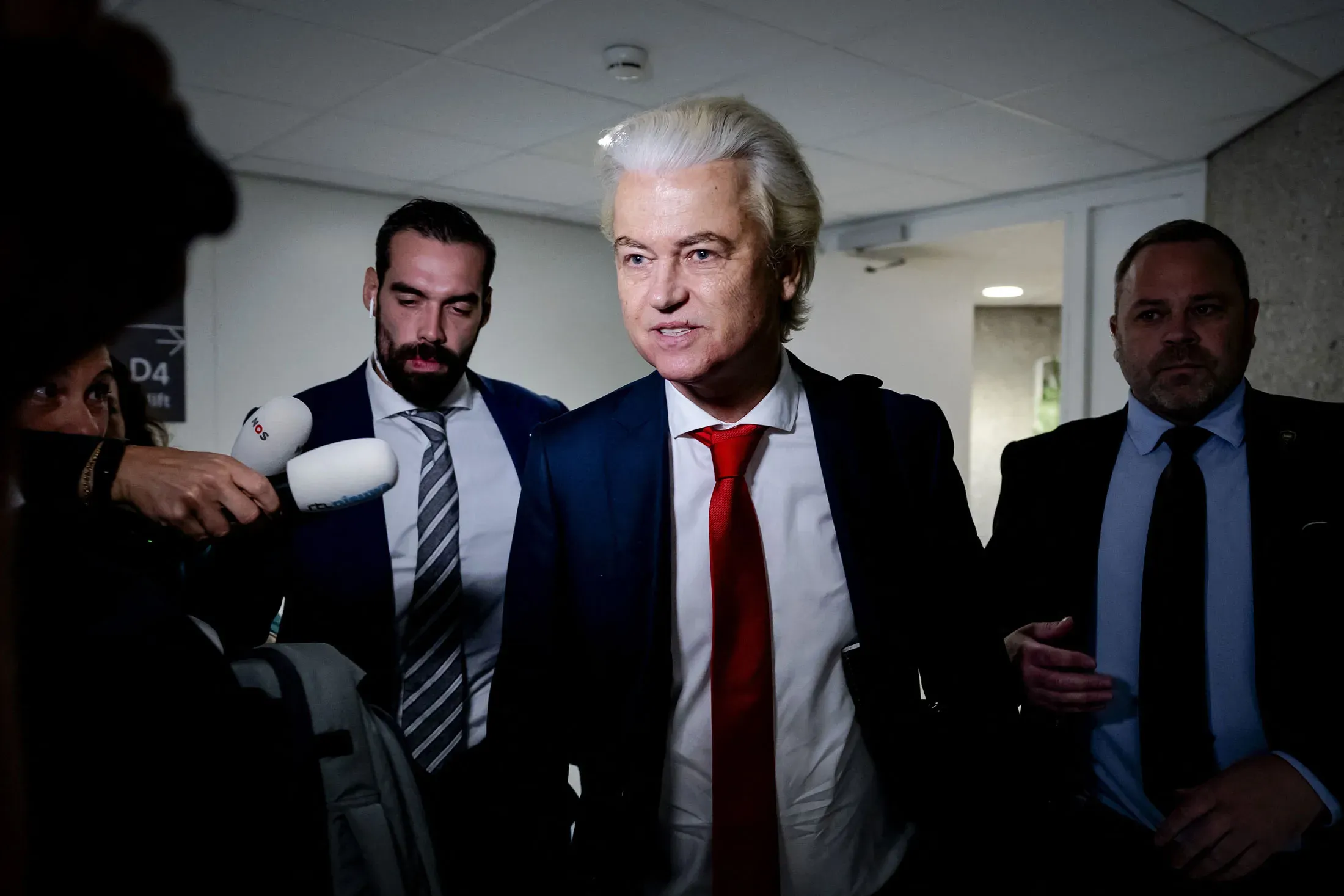Political Turmoil in the Netherlands: The Collapse of the Dutch Government
In a shocking turn of events, the Dutch government has collapsed following the withdrawal of Geert Wilders’ Party for Freedom (PVV) from the ruling coalition. This development has set the stage for a potential shift in the political landscape of the Netherlands, signaling a deepening rift over immigration and national identity in the country.
The decision by Wilders, a prominent far-right figure known for his staunch anti-Islam stance, has sent reverberations through Dutch politics and raised questions about the future of governance and stability in the Netherlands. As political analysts scramble to unpack the implications of this collapse, the focus has shifted to a recently unveiled 10-point plan aimed at drastically reducing migration.
The Coalition Breakdown
The Dutch coalition government, which has been in power since 2021, consisted of four parties: the center-right People’s Party for Freedom and Democracy (VVD), the centrist D66, the left-leaning Green Left, and the Labor Party (PvdA). Although this coalition was formed to foster unity among diverse political ideologies, tensions have been simmering beneath the surface, particularly in regard to immigration policies.
Wilders, who has long criticized the government’s approach to migration, recently expressed his dissatisfaction with what he perceived as a failure to address the concerns of the Dutch populace regarding immigration and integration. He stated that his party’s core values were not being respected within the coalition framework, prompting his dramatic exit.
Wilders’ 10-Point Migration Plan
In conjunction with his party’s departure from the coalition, Geert Wilders has proposed a controversial 10-point plan aimed at significantly reducing the number of migrants entering the Netherlands. This shift aligns with a broader trend of rising populism and nationalist sentiments across Europe.
Key Components of the Plan
- Reduction of Asylum Seekers: Wilders proposes cutting the number of asylum applications accepted each year, citing concerns about security and integration.
- Immediate Deportations: The plan includes measures to expedite the deportation process for individuals whose asylum applications have been denied.
- Elimination of Refugee Benefits: Wilders is advocating for the removal of financial support and benefits extended to asylum seekers.
- Strengthened Border Controls: He calls for enhanced border security and increased funding for border patrol agencies.
- Increased Scrutiny for Visa Applications: The plan also proposes stricter guidelines for granting visas to non-EU nationals.
- Language and Integration Requirements: Wilders seeks to impose stringent language requirements and integration tests for migrants.
- Temporary Work Visas Only: The nature of work visas would be changed to ensure they are temporary and do not lead to permanent residency.
- Collaboration with Other European Nations: The plan suggests creating a cooperative framework with other European nations to address migration more effectively.
- Public Consultations: Wilders proposes holding public forums to gauge national sentiment regarding immigration.
- A Referendum on Immigration Policy: Lastly, the plan includes a proposal for a referendum to allow the Dutch people to vote directly on national immigration policies.
Public Reaction and Political Implications
The announcement of Wilders’ migration plan has elicited a mixed response from the Dutch public. Many supporters view it as a necessary step to regain control over national borders and to protect Dutch cultural identity. Critics, however, argue that the measures are extreme and reflect a dangerous form of nationalism that could deepen societal divisions and xenophobia.
Political opponents of Wilders have condemned the move, arguing that such a drastic approach to immigration is both impractical and inhumane. The Labor Party’s leader took to social media to express his outrage, stating, “Such measures represent a regressive step for the Netherlands, undermining our values of openness and inclusivity.”
Furthermore, the collapse of the coalition raises significant concerns about the effectiveness of governance in the Netherlands. With elections scheduled for early next year, political analysts are predicting a rise in support for far-right parties, not only for Wilders but also for other similar factions that have gained traction across Europe.
The Broader Context of European Populism
The situation in the Netherlands is part of a larger narrative playing out across Europe, where populism and far-right ideologies are rising in response to global challenges such as immigration, economic disparity, and social justice movements. Countries like France, Italy, and Hungary have also experienced similar political shifts in recent years, leading to concerns about the future of the European Union and its foundational values.
As national governments grapple with public discontent and increasing pressure from populist movements, the delicate balance between maintaining national security and upholding humanitarian values remains a contentious debate. Analysts predict that the outcome of the Dutch political crisis may resonate beyond its borders, influencing similar movements and fostering a more polarized European political landscape.
Looking Ahead
The collapse of the Dutch government serves as a wake-up call for political leaders and citizens alike. The road ahead for the Netherlands is fraught with uncertainty, as Wilders’ party aims to capitalize on increased nationalistic sentiments while opposition parties scramble to find a cohesive counter-narrative. The coming months will be critical as Dutch citizens prepare to cast their votes in the upcoming elections.
In conclusion, the withdrawal of Geert Wilders’ party from the governing coalition and the subsequent unveiling of a stringent migration plan represent a significant juncture in Dutch politics. As the country grapples with its identity and future direction, the unfolding political drama will undoubtedly have lasting implications that extend far beyond the borders of the Netherlands.







